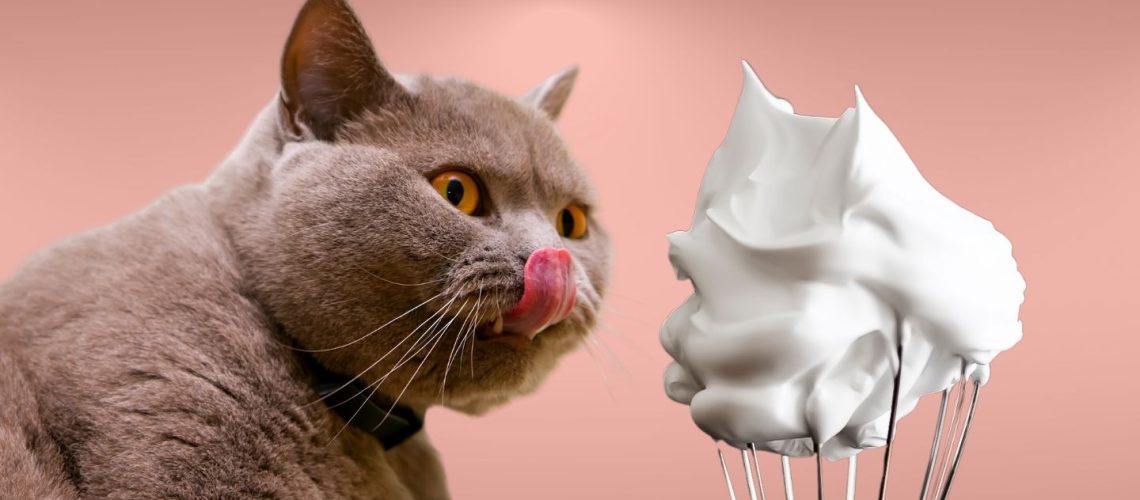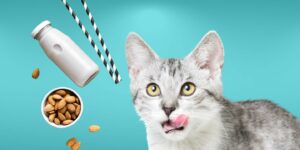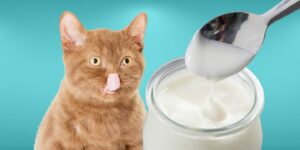Can cats eat whipped cream? The short answer is no, cats should not eat whipped cream. Although whipped cream might seem like a tasty treat for your feline friend, it can cause digestive issues and contribute to long-term health problems. In this article, we will discuss the reasons why whipped cream is not a suitable food for cats, what to do if your cat has consumed whipped cream, and suggest some safe alternatives.
Introduction
The appeal of whipped cream for cats
Cats may be attracted to the texture and flavor of whipped cream, but it is not a suitable food for them. Whipped cream is not part of a cat's natural diet, and it is important to understand which foods are safe and unsafe for them to consume.
Cats and their natural diet
Cats are obligate carnivores, which means they need to eat a diet that is primarily composed of animal-based proteins. Feeding your cat foods that do not meet their nutritional requirements can result in health issues.
Importance of understanding safe and unsafe foods for cats
Knowing which foods are safe for your cat to eat and which ones to avoid can help prevent health problems and ensure their well-being.
The Composition of Whipped Cream
Ingredients in whipped cream
Whipped cream is made from heavy cream, sugar, and sometimes, added flavorings. Heavy cream is a dairy product, and it is not a natural part of a cat's diet.
Nutritional value of whipped cream
Whipped cream is high in calories, fat, and sugar, but it does not offer any significant nutritional benefits for cats.
Sugars and fats found in whipped cream
The added sugars and fats in whipped cream can contribute to weight gain and obesity if overfed to your cat.
Cats and Lactose Intolerance
Understanding lactose intolerance in cats
Many cats are lactose intolerant, meaning they lack the enzyme necessary to break down lactose in dairy products properly. Consuming dairy products can lead to gastrointestinal issues, such as diarrhea and vomiting.
Symptoms of lactose intolerance in cats
If your cat is lactose intolerant and consumes whipped cream, they may experience symptoms such as abdominal pain, diarrhea, vomiting, and gas.
How common is lactose intolerance in cats
Lactose intolerance is relatively common in cats, and their ability to digest lactose decreases as they age.
Health Risks Associated with Whipped Cream Consumption
Short term health risks
Digestive issues
Even in small amounts, consuming whipped cream can cause digestive issues in cats, especially those who are lactose intolerant.
Allergic reactions
Although rare, some cats may have an allergic reaction to the ingredients found in whipped cream.
Long term health risks
Weight gain and obesity
Feeding your cat whipped cream regularly can contribute to weight gain and obesity, which can lead to other health problems.
Diabetes
The high sugar content in whipped cream can increase the risk of developing diabetes in overweight and obese cats.
Dental problems
Sugar can also contribute to dental issues, including tooth decay and gum disease.
Safe Alternatives to Whipped Cream for Cats
Cat-friendly treats
There are a variety of cat-friendly treats available that are specifically designed to meet their nutritional needs.
Homemade cat treat recipes
You can also make homemade cat treats using cat-safe ingredients to provide a healthy and tasty reward for your feline friend.
Keeping your cat's diet balanced and healthy
Providing a balanced and species-appropriate diet for your cat will ensure their well-being and reduce the temptation to offer unsuitable treats like whipped cream.
Tips for Preventing Your Cat from Eating Whipped Cream
Proper storage of whipped cream and dairy products
Make sure you store whipped cream and other dairy products in closed containers or the refrigerator to prevent your cat from accessing them.
Training your cat to avoid certain foods
Teaching your cat to avoid foods like whipped cream through positive reinforcement and redirection can help prevent accidental consumption.
Providing a stimulating environment to deter food-seeking behaviors
Ensuring your cat has toys, scratching posts, and other forms of enrichment can help reduce boredom-related food-seeking behaviors.
Conclusion
In conclusion, cats should not eat whipped cream. The potential short-term and long-term health risks far outweigh any enjoyment your cat might get from this treat. To ensure your cat stays healthy and happy, always offer them a species-appropriate diet and consult with your veterinarian for any dietary concerns.








